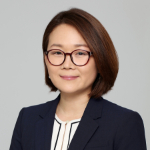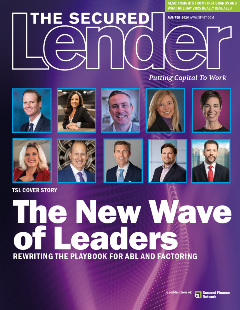
Helen Ku
Senior Vice President, Client Portfolio Manager, Express Trade Capital Inc.
Biography:
Helen Ku has over 15 years of progressive experience in the factoring and trade finance industry. She began her career at Finance One Inc. in New York in an entry level of client service position. In her time with the company, she assisted the company’s head office in Los Angeles by responding to all clients’ needs based on the East Coast, worked with other refactors to support clients’ credit inquires and managed a portfolio of factoring clients with day-to-day financing needs.
She is currently SVP and client portfolio manager at Express Trade Capital Inc., a New York-based factoring, purchase order financing and logistical service provider. She is responsible for underwriting, structuring funding facilities to tailor clients’ needs and managing on overall account portfolio. She specializes in AR factoring, purchase order financing, letter of credit, inventory financing as well as providing real estate facilities. She has taken on increased responsibilities in her five years at Express Trade Capital, progressing from an account executive role to a senior management leadership role in the company, overseeing the credit risk profile of the entire commercial finance portfolio as well as managing and training the junior account executives.
What advice would you offer to women just starting out in the industry?
For those who are starting out, I would encourage you to look forward to the strategic opportunities given to you. Remind yourself that the field is open and awaiting fresh new perspectives to diversify and innovate the industry. We have a wealth of experience that might allow us unique insights in making meaningful connections with potential clientele. Coming to terms with the imprint that we might leave can be a powerful motivation and catalyst in our personal growth and advancement.
At the same time, we shouldn’t allow ourselves to be typecast and limited. Like many other women, I contend against the social expectations of what I should or shouldn’t do. Frankly, the pull from this can feel very real at times, and even paralyzing. If I allowed myself to be weighed down by them, I would not have advanced.
But such advice is easier said than done. Growing up in a traditional context with rigid expectations didn’t make it easy for me to be proactive and assertive. What helped me transcend these internal barriers was heeding the well-worn axiom that “knowledge is power.” This may sound clichéd to the reader, but I assure you that maintaining a regular discipline of studying the intricacies of the industry gave me a natural confidence to work with clients and confidently interact with even the best co-workers. This doesn’t come casually, but requires time I alotted to learn more about our industry and proactive reflection on our actions in the workplace.
Studies have shown women are more reluctant to tout their accomplishments in the workplace. What advice would you give to help women be more comfortable with speaking up?
The proactive commitment to expanding our knowledge base that I mentioned earlier should be armed with a motive. Namely, to enhance one’s effectiveness in a way that catches the eye of a co-worker or client. This may also sound undeniable, but in my personal experience being well informed secured my competence, which in turn strengthened my confidence. This was a pleasant surprise for me when I started out. When clients would commend my performance, and I was able to offer an insight overlooked by more-experienced co-workers, I was able to express my thoughts more naturally.
What do you know now that you wish you knew in the beginning of your career?
You need mentors. When I first joined the industry, I didn’t know what I was getting into nor was I aware of the potential that awaited. Don’t agonize over your mistakes, but use them as a true learning opportunity. Find allies and mentors. Network, network and network.
Believe in yourself and remember to pray.
How can commercial finance organizations offer meaningful professional development and career advancement?
Self-education should not only be encouraged, but also a programmatic fixture in the organizations. Reinforce the impression that our organizations are contexts of substantive learning in order to inspire our staff to independently educate themselves. Make them feel that their endeavors are being supported. Offer financial assistance to those who are taking the formal route in a learning institution. Embrace every possible avenue to enhance the learning environment such as webinars and seminars. Encourage creative analysis alongside skill development, so that the average staff member may not only be more competent, but also equipped to research opportunities to invest in for their own benefit as well as the organization.
The Secured Lender

SFNet's The Year Ahead Issue


